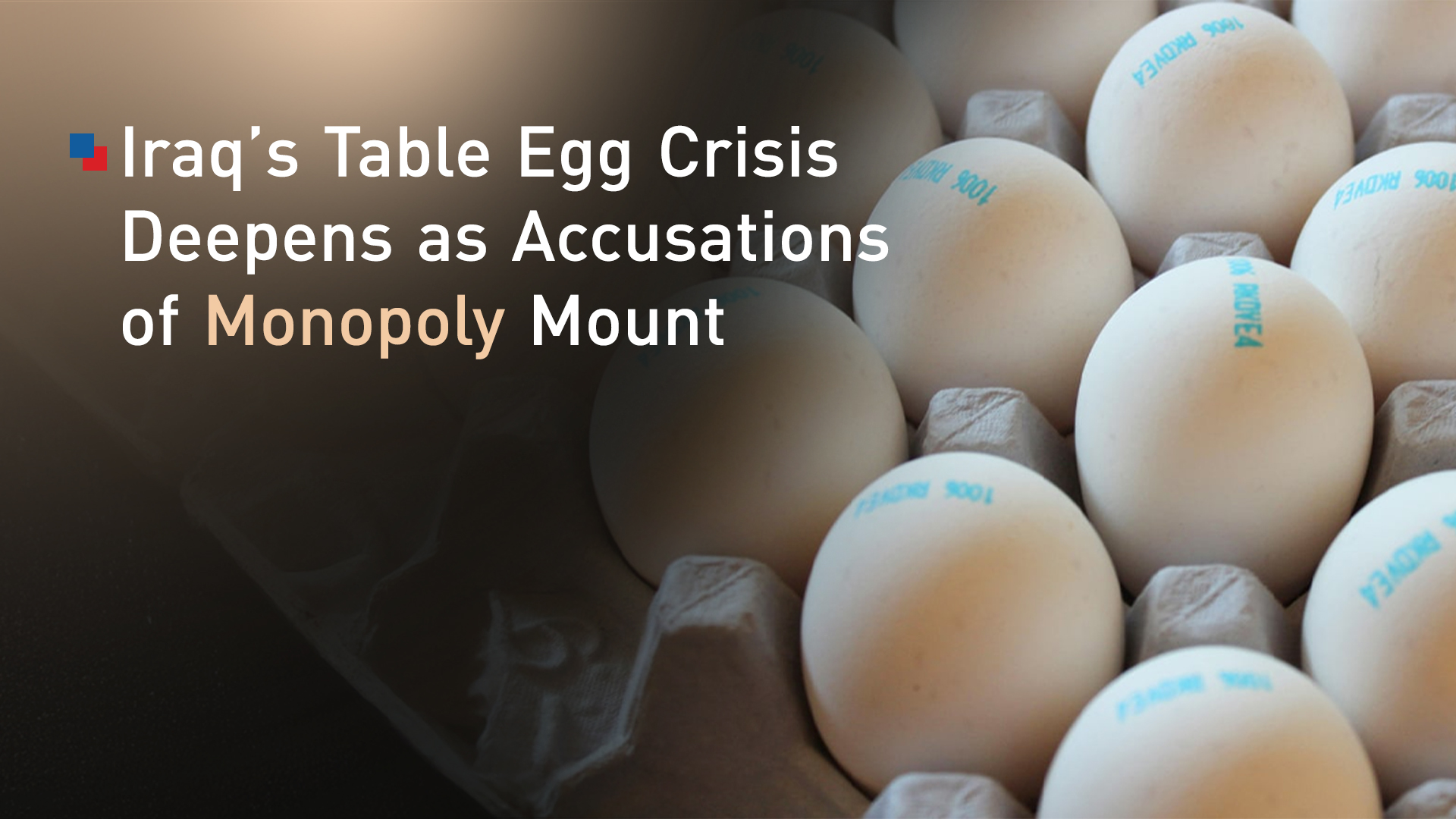Iraq’s Table Egg Crisis Deepens as Accusations of Monopoly Mount
Iraq faces a table egg crisis as prices surge to 70,000 IQD per carton amid accusations of market monopoly. The government acknowledges considering imports from the Kurdistan Region, which produces over 4 billion eggs annually, to stabilize supply.

ERBIL (Kurdistan24) – Iraq’s food markets are witnessing a mounting crisis as table egg prices continue to surge across several provinces, sparking public anger and renewed accusations that a handful of companies are engaging in monopolistic practices. Traders, citizens, and agricultural observers warn that the government’s ban on egg imports—initially introduced under the banner of protecting domestic production—has instead opened the door for unchecked price manipulation in the absence of meaningful oversight.
For months, Iraqi consumers have faced unprecedented spikes in egg prices, with traders and specialists stressing that the crisis stems not from production costs, but from market control by a limited network of suppliers. Despite being intended as a measure to support national producers, the import ban has—according to experts—transformed into a mechanism enabling excessive profits at the expense of ordinary families already struggling with inflation.
Traders told Kurdistan24 that “the wholesale price of one carton of eggs has reached 70,000 IQD, a record high compared to normal market levels.” Despite the dramatic price increase, available data shows that production costs do not exceed 40,000 IQD per carton, revealing a profit margin made possible only through lack of competition following the import prohibition.
Citizens expressed frustration over what they describe as an unjustified spike, noting that egg prices “no longer match the purchasing power of families,” particularly those with limited incomes who rely on eggs as an essential and affordable protein source.
Observers emphasize that this crisis reflects a dangerous structural gap in production and oversight. They argue that the government has failed to regulate the market, allowing influential companies to dominate supply and dictate prices while the state remains absent from monitoring the movement of goods or enforcing fair competition.
Across several Iraqi provinces, the egg shortage and soaring prices have escalated dramatically. In governorates such as Baghdad and Najaf, the price of four eggs has reached 1,000 IQD, while a single tray now approaches 8,000 IQD. The Iraqi government has acknowledged the severity of the crisis, stating openly that importing eggs from the Kurdistan Region may be among the primary solutions to rebalancing the market.
Tariq Qasim, Director General of Monitoring and Follow-up at the Iraqi Ministry of Agriculture, said during a press briefing that the current crisis is the result of deliberate “market manipulation” by certain producers who intentionally raised prices. He confirmed that the Kurdistan Region continues to maintain high levels of egg production, noting that in previous years Kurdistan supplied a significant portion of Iraq’s total demand.
Today, Iraqi authorities are seeking to rely once again on the Kurdistan Region to fill the newly created gap in the market.
The Kurdistan Region currently hosts more than 50 egg production projects, with an annual capacity exceeding 4 billion eggs—far surpassing local consumption needs. This production volume positions the Region as a critical stabilizing force capable of supporting nationwide supply and mitigating the crisis triggered by monopolistic practices and import restrictions.
As the crisis intensifies, pressure is building on Baghdad to reassess its import ban, tighten oversight, and protect consumers from market manipulation. With prices rising far beyond normal household budgets and millions of Iraqis depending on eggs as a daily staple, reopening imports—or expanding reliance on the Kurdistan Region’s robust production—has emerged as a central recommendation by traders, specialists, and affected families alike.
The table egg crisis has become both an economic and social issue, exposing deeper flaws in Iraq’s market regulation and highlighting the urgent need for transparent, competitive policies that safeguard citizens rather than burden them.